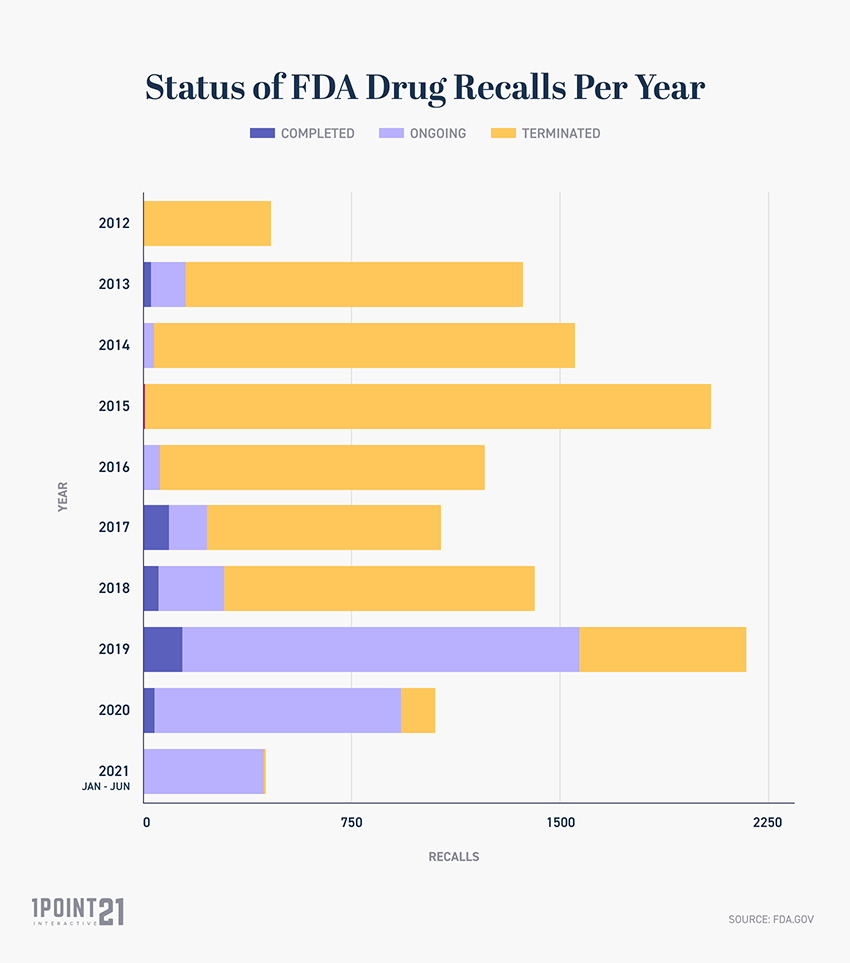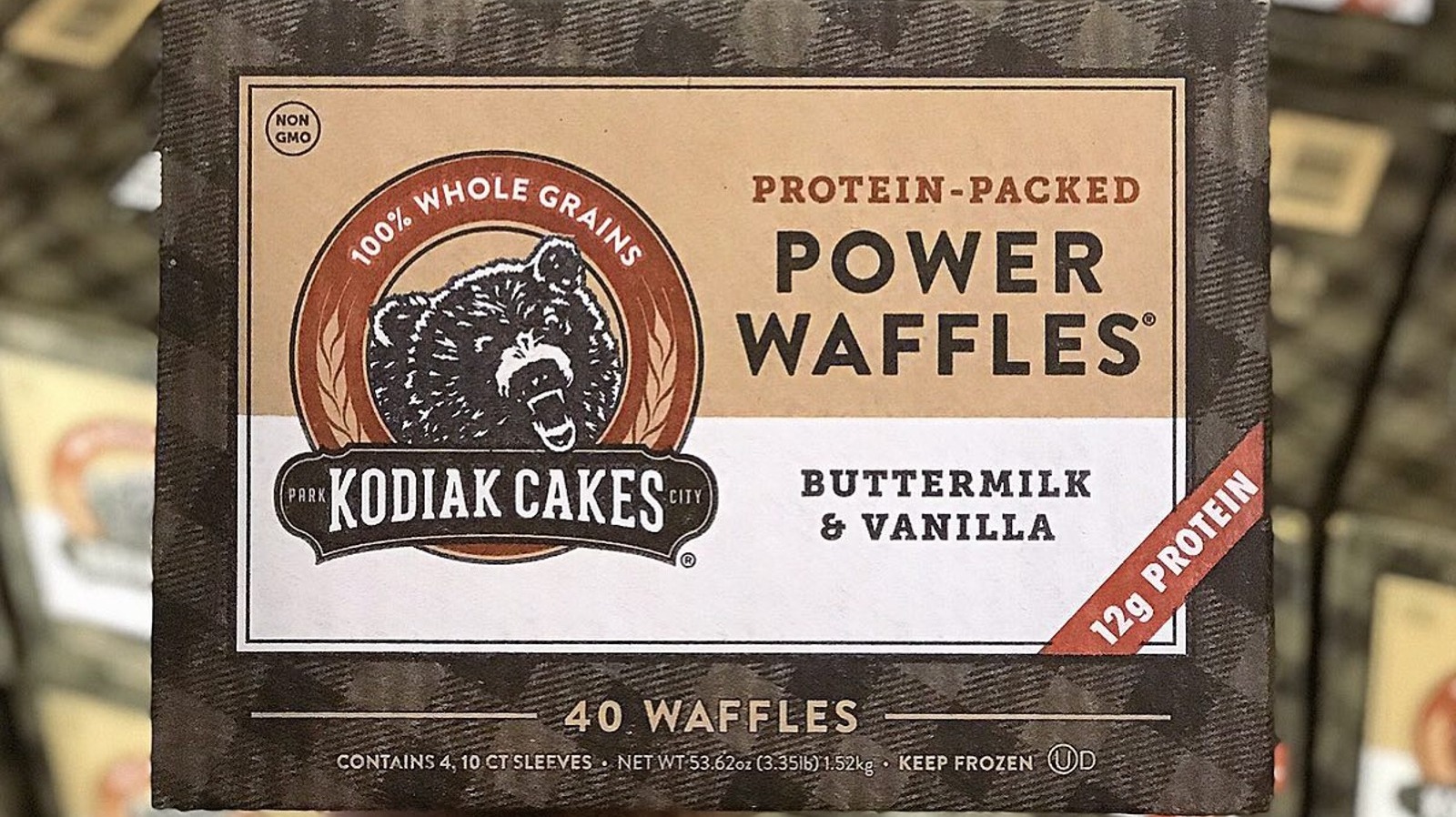Hey there, folks. Let's dive straight into something that's making waves across kitchens nationwide – the FDA waffle recall. Now, I know what you're thinking. Waffles? Really? But hear me out because this isn't just about your breakfast staple. This is about food safety, consumer awareness, and understanding why the FDA takes these actions seriously. So, grab a cup of coffee (or maybe skip the waffles for now), and let’s break it down together.
Food recalls happen more often than we think, but when it comes to something as beloved as waffles, people start paying attention. The FDA waffle recall has sparked conversations about what goes into our food, how safe it really is, and what steps manufacturers should take to ensure quality control. This isn’t just a small issue—it's a big deal that affects everyone who enjoys a good breakfast.
And before we go any further, let me drop a quick disclaimer: while I’m not a scientist or food safety expert, I’ve done my homework on this topic. We’ll be diving deep into the reasons behind the recall, the impact it has on consumers, and what you can do to stay safe. So buckle up, because we’re about to get real about those frozen waffles in your freezer.
Read also:Priscilla Presley Stuns At 74 Her Timeless Beauty And Heartfelt Memories Of Elvis
What Exactly is the FDA Waffle Recall?
The FDA waffle recall refers to the official action taken by the U.S. Food and Drug Administration when certain brands of waffles are found to pose health risks to consumers. These risks could range from contamination with harmful bacteria like Salmonella or Listeria, to undeclared allergens such as peanuts or tree nuts. When the FDA identifies a potential hazard, they issue a recall to protect public health.
In this particular case, the recall was triggered after routine testing revealed issues with specific batches of waffles. While the exact nature of the contamination varies depending on the brand, the underlying concern remains the same: ensuring that the food we eat doesn’t harm us. The FDA plays a critical role in monitoring food safety, and their actions reflect a commitment to keeping consumers safe.
Key Details About the Recall
- Multiple brands have been affected, including popular names you might recognize from your grocery store freezer aisle.
- Contaminants identified include bacteria, undeclared allergens, and even foreign objects like plastic or metal fragments.
- Consumers are urged to check product labels carefully and dispose of or return recalled items immediately.
Now, let’s talk about why this recall matters so much. It’s not just about waffles—it’s about trust. When we buy packaged foods, we expect them to be safe. The FDA waffle recall serves as a reminder that food safety is an ongoing process, requiring vigilance from both manufacturers and regulatory agencies.
Why Should You Care About the FDA Waffle Recall?
Here’s the thing: foodborne illnesses are no joke. According to the Centers for Disease Control and Prevention (CDC), approximately 48 million Americans get sick from foodborne diseases each year. That’s a staggering number, and it highlights the importance of food safety measures. The FDA waffle recall is just one example of how these measures work in practice.
When a product is recalled, it means that there’s a significant risk to public health. Whether it’s due to contamination or mislabeling, the consequences can be severe. For instance, individuals with allergies may experience life-threatening reactions if they unknowingly consume products containing undeclared allergens. Similarly, bacterial contamination can lead to serious infections, especially in vulnerable populations like children, elderly individuals, and those with weakened immune systems.
Who is Most at Risk?
Certain groups are more susceptible to the effects of contaminated food:
Read also:Donny Osmond Opens Up About His Marriage Secret And Lifelong Love Story
- Young children whose immune systems are still developing.
- Elderly individuals who may have weaker immune responses.
- People with chronic illnesses or compromised immune systems.
- Those with known food allergies or intolerances.
For these individuals, even a minor exposure to contaminants can result in serious health complications. That’s why staying informed about recalls is crucial. Knowledge is power, and in this case, it can literally save lives.
How Does the FDA Handle Recalls?
The FDA has a robust system in place for handling food recalls. When a potential issue is identified, they work closely with manufacturers to investigate the problem and determine the appropriate course of action. This process involves several key steps:
- Identifying the source of contamination or mislabeling.
- Notifying the public through press releases and updates on the FDA website.
- Working with retailers to remove recalled products from store shelves.
- Monitoring compliance to ensure that all affected products are accounted for.
It’s important to note that the FDA doesn’t issue recalls lightly. Each decision is based on scientific evidence and careful analysis. Their primary goal is to protect consumers, and they take that responsibility very seriously.
Classifications of FDA Recalls
Recalls are categorized into three classes based on the severity of the risk:
- Class I: The most serious, where there’s a reasonable probability of serious adverse health consequences or death.
- Class II: Moderate risk, where exposure could cause temporary or medically reversible adverse health effects.
- Class III: The least serious, where exposure is unlikely to cause adverse health effects.
The FDA waffle recall falls under one of these classifications, depending on the specific circumstances of the contamination. Understanding these categories helps consumers assess the level of risk associated with a particular recall.
What Should You Do During a Recall?
So, you’ve heard about the FDA waffle recall. Now what? Here’s a quick guide on what you should do to protect yourself and your family:
- Check the FDA website or official recall notices for a list of affected products.
- Examine your pantry or freezer for any recalled items.
- Dispose of or return recalled products to the retailer for a refund.
- Stay informed by signing up for recall alerts or following trusted news sources.
It’s also a good idea to practice safe food handling habits, such as washing your hands thoroughly and cooking food to the appropriate temperature. These simple steps can go a long way in preventing foodborne illnesses.
Common Misconceptions About Recalls
There are a few myths floating around about food recalls that deserve clarification:
- Myth: Recalls only happen when someone gets sick. Fact: Many recalls are proactive measures taken to prevent illness.
- Myth: Only small brands are affected by recalls. Fact: Even major companies can experience production issues leading to recalls.
- Myth: Once a recall is issued, the problem is solved. Fact: Ongoing monitoring is necessary to ensure compliance and prevent future issues.
Knowing the truth about recalls empowers you to make better decisions about the food you consume.
Impact on Consumers and the Industry
The FDA waffle recall has far-reaching implications for both consumers and the food industry. For consumers, it raises awareness about food safety and encourages more mindful purchasing decisions. For manufacturers, it serves as a wake-up call to prioritize quality control and transparency.
Companies that fail to address food safety concerns risk damaging their reputation and losing customer trust. On the flip side, those that take proactive steps to improve their processes can enhance their brand image and build stronger relationships with consumers.
How Can Manufacturers Prevent Recalls?
Preventing recalls requires a multi-faceted approach:
- Implementing rigorous testing protocols throughout the production process.
- Ensuring accurate labeling to disclose all ingredients and potential allergens.
- Conducting regular audits and inspections to identify and address issues early.
- Investing in employee training to promote food safety awareness.
By taking these steps, manufacturers can reduce the likelihood of recalls and ensure that their products meet the highest standards of safety.
The Future of Food Safety
As technology advances, so too does the field of food safety. Innovations like blockchain, AI, and IoT are revolutionizing the way food is tracked and monitored throughout the supply chain. These tools offer greater transparency and accountability, helping to prevent contamination and mislabeling before they occur.
Consumers also play a vital role in shaping the future of food safety. By demanding higher standards and supporting companies that prioritize safety, we can drive positive change in the industry. Together, we can create a safer, healthier food system for everyone.
Trends to Watch
Here are a few trends to keep an eye on in the world of food safety:
- Increased adoption of digital technologies for tracking and tracing food products.
- Greater emphasis on sustainability and reducing food waste.
- More stringent regulations and guidelines for food manufacturers.
These trends signal a shift toward a more proactive and holistic approach to food safety, benefiting both consumers and the industry as a whole.
Final Thoughts
Alright, folks, that’s the lowdown on the FDA waffle recall. While it may seem like just another food safety issue, it underscores the importance of staying informed and vigilant about what we eat. Whether it’s checking for recalls, practicing safe food handling, or supporting companies that prioritize safety, every action counts.
So, here’s my call to action: take a moment to review your pantry or freezer for any recalled products. Sign up for recall alerts to stay up-to-date on the latest developments. And most importantly, spread the word to friends and family so they can stay safe too.
Remember, food safety is a shared responsibility. By working together, we can create a safer, healthier world—one waffle at a time. Thanks for reading, and I’ll catch you in the next article!
Table of Contents


